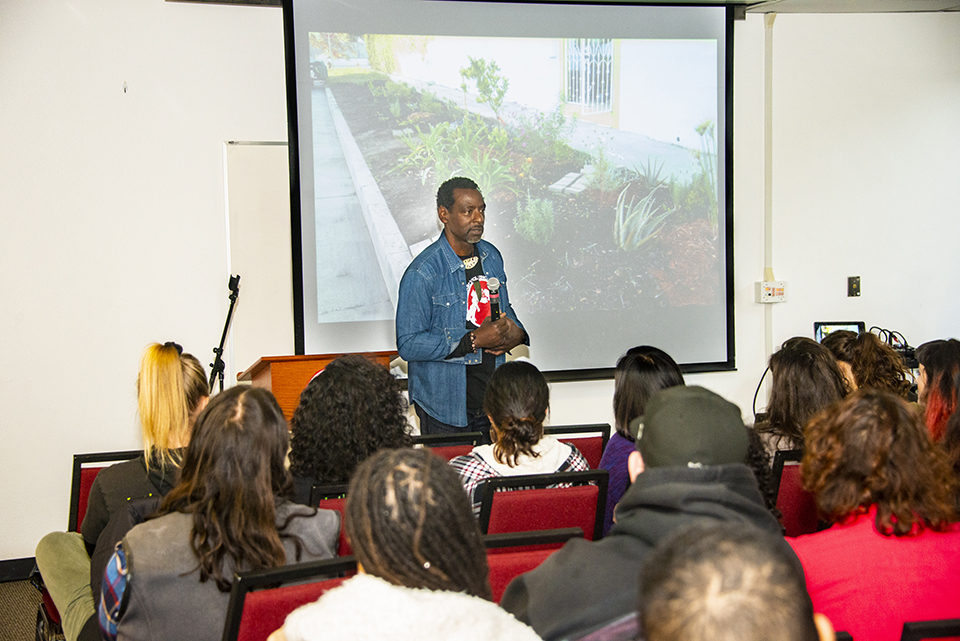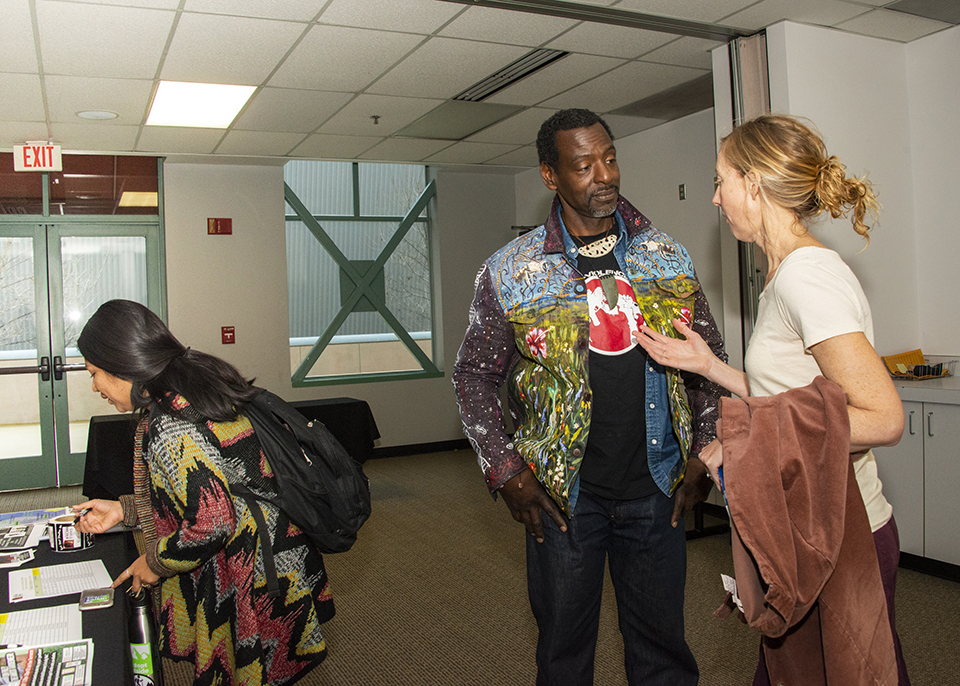The ‘Gangsta Gardener’ Encourages Students to Take Health into their Own Hands
“Gardening is one of the most gangsta things you can do,” Ron Finley said. “It equals freedom — freedom from an oppressive system.”
Finley, the self-proclaimed “Gangsta Gardener,” emphasized the importance of community gardening and healthy food in a Feb. 20 presentation to students, faculty and staff as part of the Department of Africana Studies’ 50th anniversary and celebration of Black History Month at California State University, Northridge. Gardening offers the freedom to control what you eat and where you get food from, regardless of your surroundings, he said.
“It isn’t just about food and gardening. This is my graffiti, this is real street art. This isn’t valued in our society, and it’s up to you guys to bring this back,” Finley told students. “If you learn what a true resource is — not just money — it changes your mindset. You can utilize the resources around you to change your life.”
Theresa White, chair of the Department of Africana Studies, welcomed participants and spoke about the rich half century of Africana studies at CSUN.
“Because Africana studies has such a rich and textured story, it’s multi-layered,” she said. “In order to honor elements of our history and to celebrate Black History this month, we’ve categorized events into thematic slots; this week is focused on social, political and environmental justice.”
Finley’s tools for activism are a shovel, soil and seeds. In 2010, Finley planted a garden in a parkway in front of his South Los Angeles home. The city cited him and later issued an arrest warrant. He started a petition with other green activists demanding the right to garden in his city. Eventually, city authorities backed down.
This inspired Finely to start bringing healthier food to communities where there was none. He is dedicated to turning what he called “food prisons,” where the food and choices are limited, into “food forests,” where there are plentiful resources and healthy food available.
Finley collected donated tools, saplings and seeds, and he gathered volunteers to organize “dig-ins” in his community. The “Ron Finley Project” began planting city-wide food gardens in parkways, yards, schools and at homeless shelters. Finley’s mission has led him to opportunities such as giving his own TED Talk, traveling to conferences around the world and starring in the 2015 documentary “Can You Dig This,” co-executive produced by John Legend.
“Why should beautifying your street be illegal?” he asked. “It’s almost like saying beauty is illegal. In some neighborhoods, it is. Beauty is by design, ugly is purposeful. In some places, they want ugly because they know how that affects your health. It becomes normal for you to see ugly.”
The Africana studies event was co-sponsored by CSUN’s Institute of Community Health and Wellbeing; the Marilyn Magaram Center for Food Science, Nutrition and Dietetics; Let’s Grow Healthy student organization; CSUN Black House; Office of Community Engagement; Office of Research and Graduate Studies and the Institute of Sustainability.
CSUN students from the Let’s Grow Healthy program, part of the Magaram Center, encouraged students to join their internship program and gain professional development experience. The Let’s Grow Healthy program works with CSUN nutrition and dietetics students to help San Fernando Valley schools establish gardens. The program also gives students and families access to resources to take charge of their own food access.
CSUN’s campus has two community gardens, the Marilyn Magaram Center Wellness Garden and the Institute for Sustainability food garden.



 experience
experience